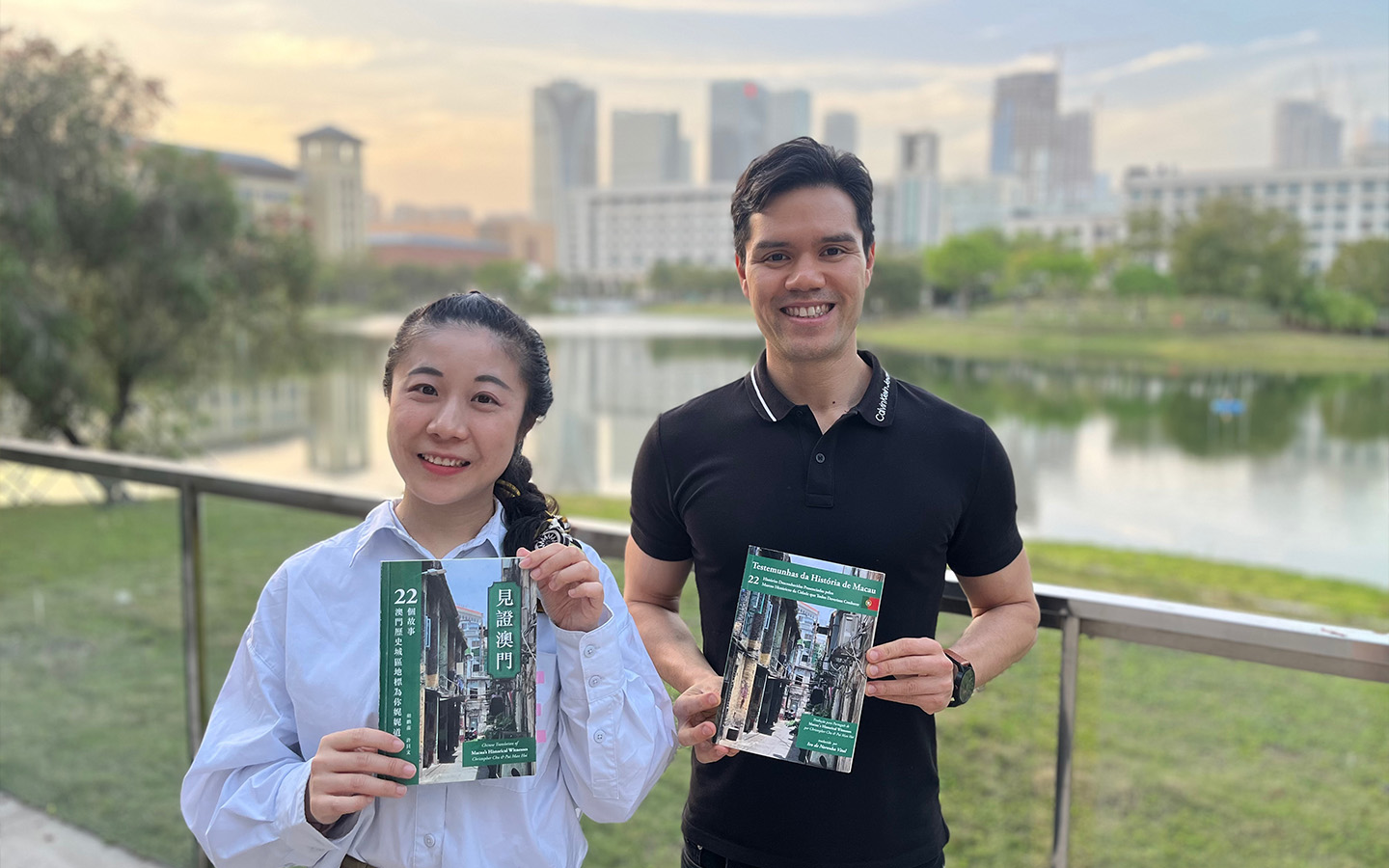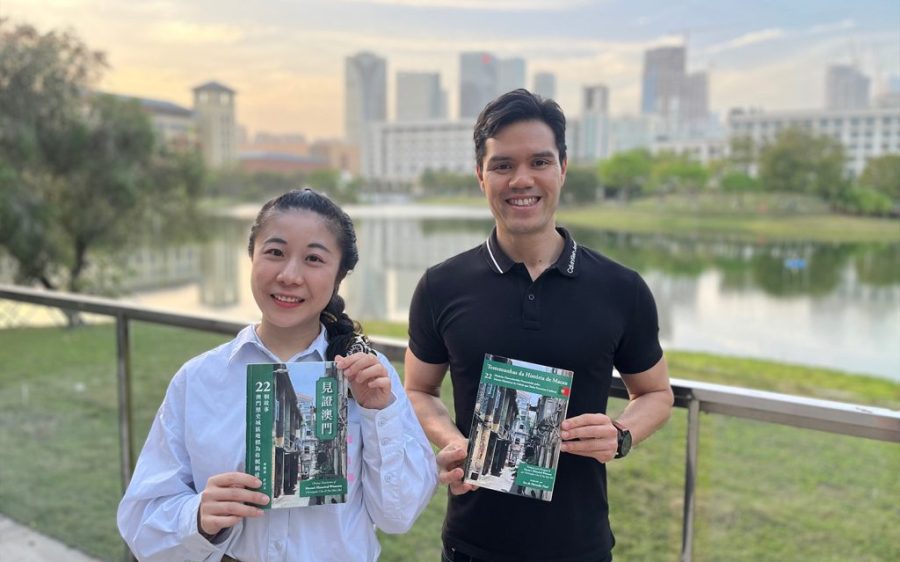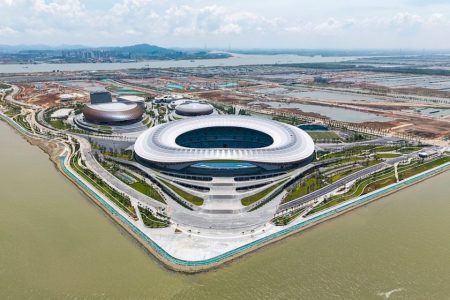When I co-wrote Macau’s Historical Witnesses, terms like “social distancing” and “pandemic restrictions” were still part of the conversational landscape, while the likes of “generative AI” and ChatGPT had yet to arrive. Among those present with us for the book’s launch back in November 2022 were two future PhD students, each hoping to broaden its reach by translating it into Macao’s official languages – Chinese and Portuguese.
[See more: The Macau Literary Festival returns with a focus on poetry and decolonization]
Macau’s Historical Witnesses is a collection of short stories narrating the city’s past from the perspective of the buildings, churches and other monuments. Lizao Hu, who hails from Sichuan Province, would handle the Chinese, while Macao-born Ivo de Noronha Vital planned to adapt a Portuguese edition. Hu is currently pursuing her doctorate in English literary studies; Vital’s dissertation focuses on cross-linguistic influences. Both attend the University of Macau.
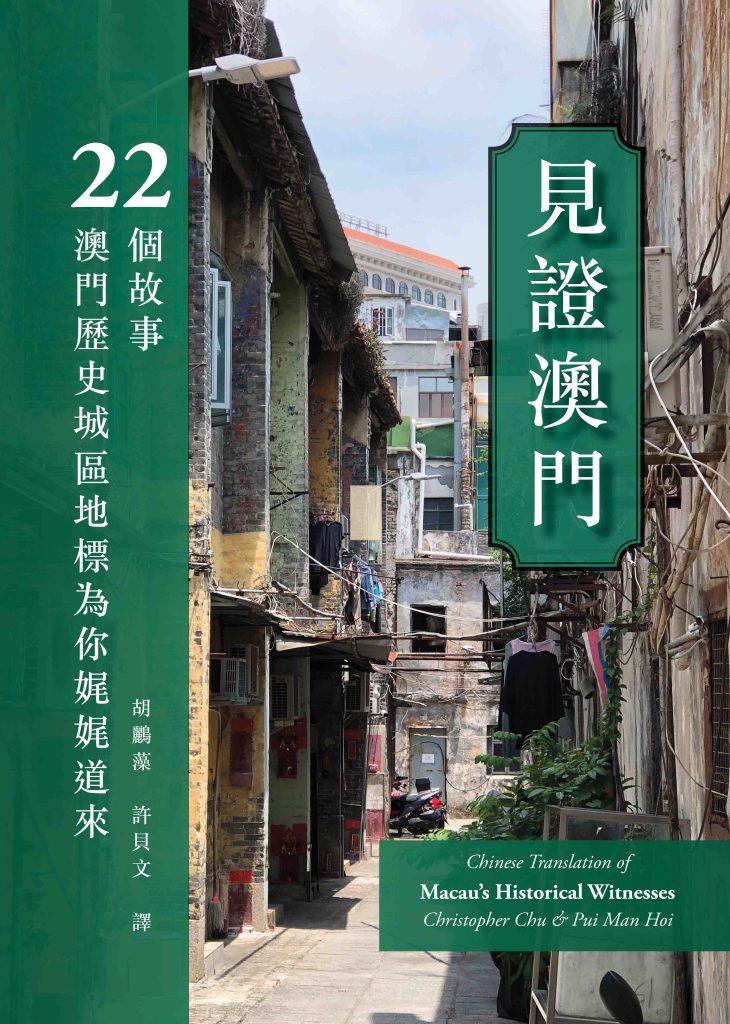
Mastering the art of ‘transcreation’
The Chinese rendition of Macau’s Historical Witnesses was published in the summer of 2023 and is titled 見證澳門, literally “witnessing Macao.” Hu began working on 見證澳門 before the English original was published, and it took her a year to complete. She describes the final product as a “transcreation” rather than a translation, or an exercise involving both translation and creation.
“Once I felt comfortable with the material, I realised that while I was staying true to the book’s meaning, I was also reimagining the story,” Hu explains.
The endeavour was challenging on several levels. Landing on the right linguistic nuance when translating a work from one language to another is always tricky, but Hu says she also had to dive deep into Macao’s history to do her Chinese version justice. The original book’s reference section helped her engage with the content Macau’s Historical Witnesses was synthesising, she notes.
These challenges were also experienced by Vital, who has titled the yet-to-be published Portuguese edition Testemunhas da História de Macau (a direct translation of “Witnesses of Macau’s History’).
Vital categorises translation work into various categories. Administrative or technical translations tend to adhere to fixed rules or terminologies, he reflects, while literary translations can assert ownership and expression of an individual translator’s style.
[See more: On World Book Day, here are some of the best Chinese books about Macao]
“The English version was designed with brevity in mind, but the Portuguese translation will naturally be more verbose to capture the implicit poetry of the language,” Vital says, commenting on the stylistic difference between literature in the two languages. He says that Testemunhas da História de Macau – like 見證澳門 – follows the essence of the English original while conveying his own unique voice.
Hu tells me that her experience transcreating Macau’s Historical Witnesses into 見證澳門 challenged not only her imaginative capabilities, but her re-imaginative skill set as well.
“Sometimes you find yourself in an uncomfortable space between the original meaning and a subsequent translation, [and it’s here] that you cannot be afraid to rely on your own words to lead you out,” she says.
Vital agrees. When translating a work, he says he often finds himself asking, “What story, inside the story, do I want to showcase to the reader?” Also: “How can I use my own personal experience to enrich the material?”
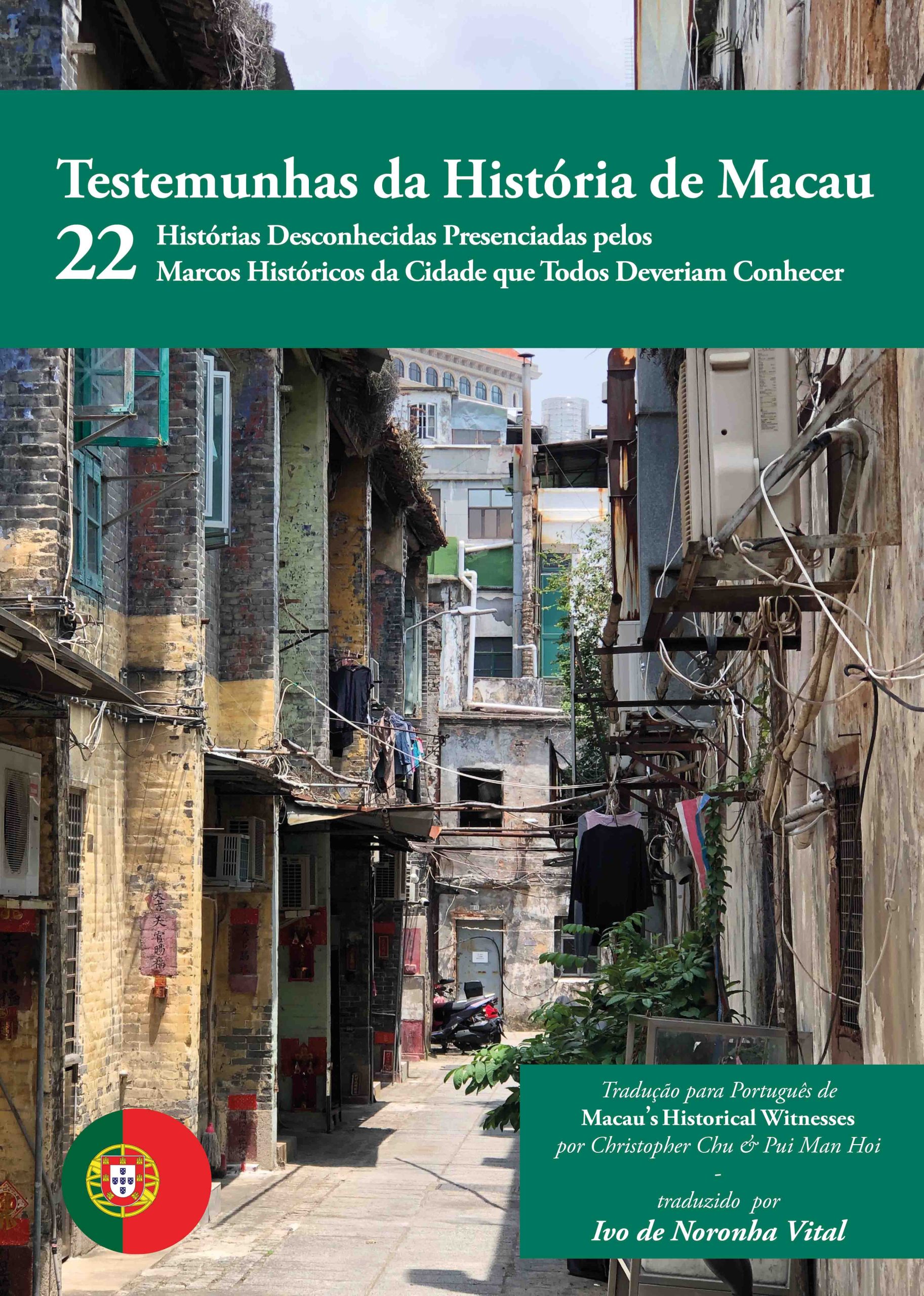
Broadening books’ reach through translation
The Portuguese-language translator plans to release Testemunhas da História de Macau around 10 June, officially celebrated as Portugal, Camões and Portuguese Communities Day. Camões, of course, is the poet Luís de Camões – believed by some to have written at least part of his most famous work, The Lusiads, in Macao during the 1560s.
Once 見證澳門 and Testemunhas da História de Macau are both publicly available, Hu and Vital hope their respective editions will introduce Macao’s story to wider audiences in the Greater Bay Area and Portuguese-speaking countries, both of which share close ties with the city.
The university students also have other literary projects on their horizons. Hu plans to build on her PhD work and leverage the book’s three languages for a younger audience, envisioning a collaboration with local artists to publish a children’s iteration for early educational purposes. Meanwhile, Vital is preparing a Portuguese translation of Camilo Pessanha’s Macau Stories, which, like Macau’s Historical Witnesses, was co-written by my wife and I back in 2023.
[See more: I Ask, You Answer with New York Times bestselling author Paul French]
“We all know the name Pessanha, but we don’t know a lot about him,” says Vital. “I’m hoping that a Portuguese adaptation of Camilo Pessanha’s Macau Stories will strengthen his identity during the centennial of the poet’s death next year and provide another narrative for Macao’s culture for the Portuguese speaking audience.”
The words we use shift with the zeitgeist – from pandemic-era jargon to the tech-inflected language of today – but also in the hands of translators, who specialise in capturing the cultural nuance and linguistic rhythms distinct to every lexicon. This means that as Macau’s Historical Witnesses moves between languages, each version stands as something fresh and distinct – a transcreation by its author, its translator, and the moment in which it’s been rewritten.
